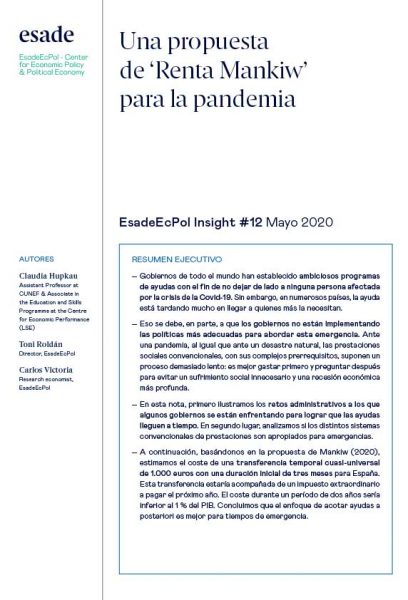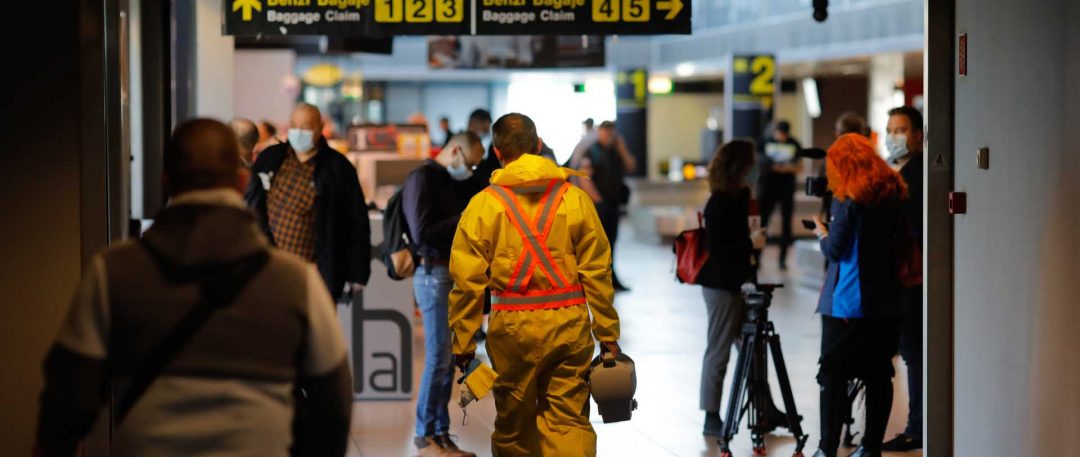
The case for a “Mankiw pandemic income” for Spain
Claudia Hupkau, Toni Roldán, Carlos Victoria
18 May, 2020
EsadeEcPol | Policy Insight
Executive summary
- Governments around the world have put in place ambitious relief programmes with the aim of not leaving anybody hit by the Covid-19 crisis behind. However, in many countries, help is taking too long to get to those in need.
- This is partly because governments may not be implementing the right policies for emergencies. In pandemics, such as in natural disasters, conventional benefits with complex pre-requisites are too slow: it is better to spend first and ask later. This can help avoid unnecessary social suffering and a deeper economic recession.
- In this note, we first illustrate the scale of the administrative delays some governments are facing in processing benefit claims made since the onset of the crisis. Second, we discuss whether different conventional benefit schemes are suitable as emergency responses.
- Third, based on Mankiw’s (2020) proposal, we estimate the cost of a quasi-universal temporary cash transfer of 1,000 euros for an initial duration of three months for Spain. The transfer would be accompanied by a one-off tax to be paid the following year. The cost over the two-year period would be of less than 1% of GDP. We conclude that ex-post targeting is likely to be superior to complex ex-ante targeting in times of emergency.

Read the full article:

Claudia Hupkau
Assistant professor at CUNEF & Associate in the Education and Skills Programme at the Centre for Economic Performance (LSE)
View profile



